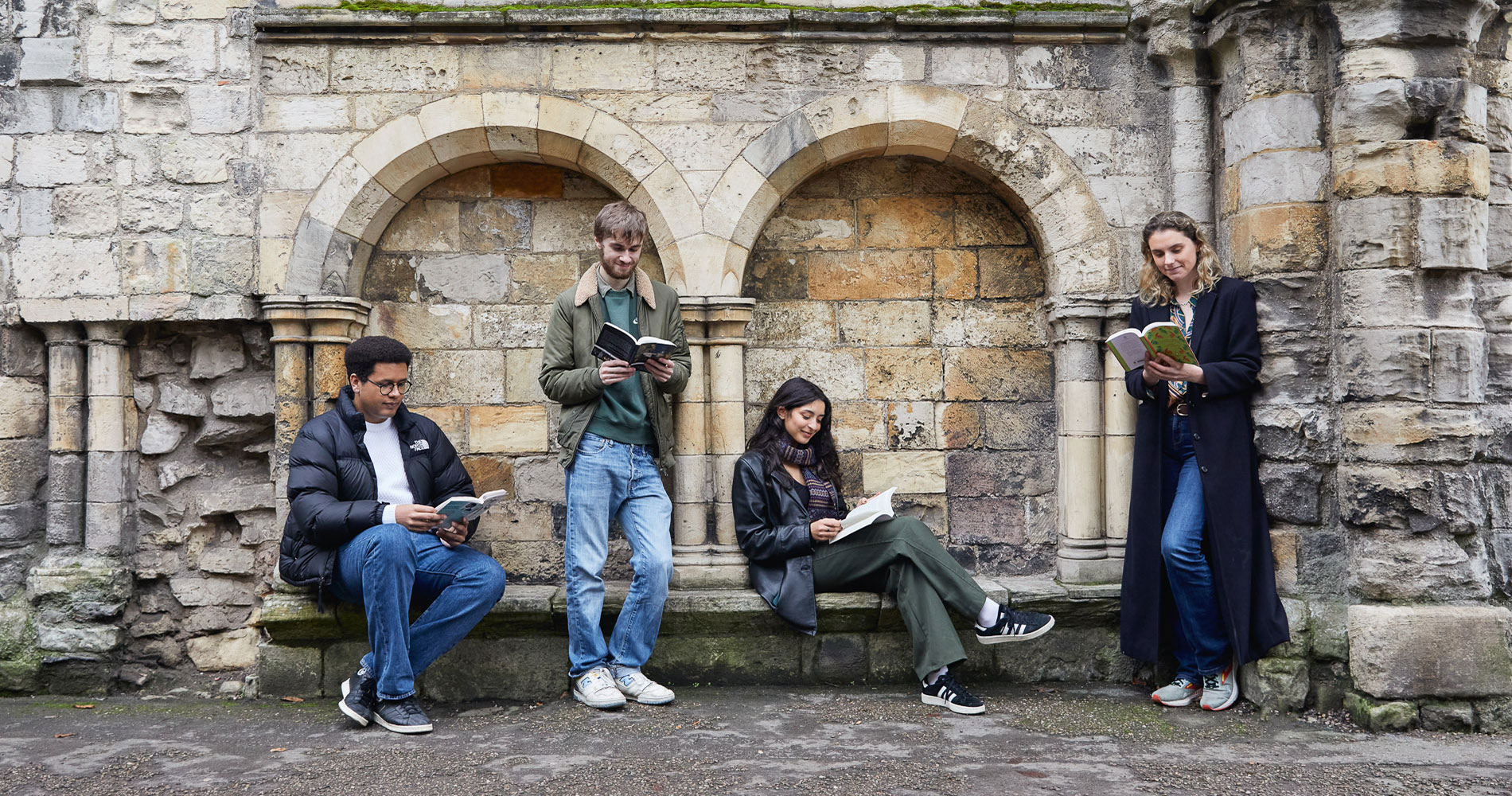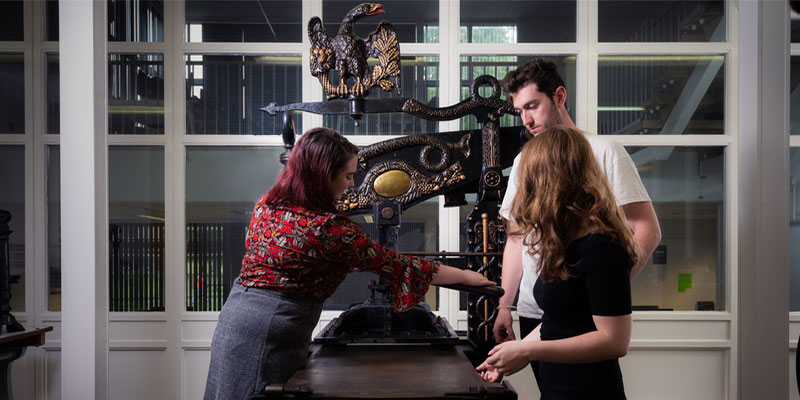Read a diverse array of texts from across historical periods and around the globe, with options in film, foreign literature, and creative writing.
Why study English at York?
We offer a friendly and supportive learning environment, helping you to make the transition to degree-level study in first year and providing support as you continue to develop your research and writing skills over the course of your studies.
We place a strong emphasis on small-group seminar teaching, with lots of opportunities for one-to-one consultation with staff. We foster creative and critical thinking, inviting you to develop essays and projects tailored to your own interests.





